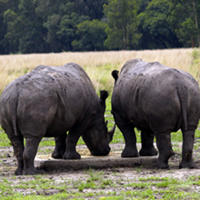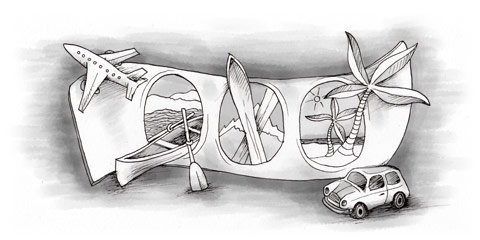Keep safe
Like many African countries, South Africa suffers from a certain level of violent crime. Follow these safety tips so you have a visit to remember for all the right reasons:
- Be careful of roadside sellers and beggars.
- Lock your car doors while traveling. Carjacking does occur, so also be careful when stopping to help at what looks like an accident or otherwise.
- When in a car put valuables under the seat or out of sight.
- Follow local advice and don’t go to areas that may be unsafe.
- Make sure car doors are locked and rooms are locked when leaving the house. Don’t leave anything of value in a locked car

Most crime in South Africa is between people who know each other. Random acts of violence are only a minority of cases. Using common sense and avoiding situations where you may encounter problems means the vast majority of visitors encounter no problems.
Driving in South Africa
If you intend on driving in South Africa, get familiar with the local driving laws and take sensible precautions:
- It is compulsory to wear a seatbelt and this is strictly enforced by the law. Failure to do so will result in a fine.
- Drink Driving is a serious offence and offenders are prosecuted! The alcohol allowance in the blood is 0.05%. This translates as 1 and a half glasses of wine for a man and 1 glass of wine for a woman.
- South Africa has relatively good road conditions. However, there are usually significant distances between towns. To ensure a safe journey, plan your itinerary in advance so that you are not driving long distances. Tiredness kills.
- Be aware that petrol stations may be less common than you are used to in more remote areas. Get informed or carry spare fuel.
- Avoid driving at night as this carries more risks of fatigue and dangers to your safety.
- Stray animals in rural and remote areas can be a problem as the roads aren’t fenced. This can result in an accident at night as street and road lighting there are minimal.
Financial planning

The Rand is constantly changing in value against other currencies. Over recent years the fluctuations have been quite extreme.
If you are planning a move to South Africa, you should get familiar with the exchange rate. If you keep this up you will be thinking in South African terms and stop converting the money!
If you are looking to move significant sums of money you may want to consult a currency exchange specialist as they can a) get you a good rate of exchange and b) can propose financial tools to lock in a fixed exchange rate in the future (especially useful if you are buying property, but have not sold your current property and want to have some certainty).
I hope that your new life in South Africa will be a prosperous and enjoyable one!
By Catriona Stevenson
Go-2-SA.com

